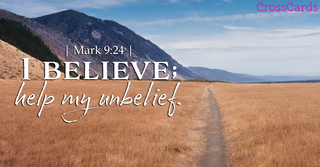
- Recent Translations
- All Translations
Images for Mark 9:42

Mark 9:42 Meaning and Commentary
And whosoever shall offend one of these little ones that
believe in me
Whosoever shall do the, least injury to the meanest person that believes in Christ, who are mean both in their own eyes, and the eyes of others; for Christ is not speaking of little children in age, who are neither capable of believing in Christ, nor are they ready to take offence; but of such as belong to him; his disciples and followers, of whom he is speaking in the preceding verse:
it is better for him that a mill stone were hanged about his neck,
and he were cast into the sea;
and drowned there: the allusion is to the drowning of malefactors, by tying a stone, or any heavy thing about their necks, and casting them into the sea. Casaubon, and others, have shown out of Heathen writers, that this has been a practice of some nations, particularly the Grecians: Jerom says, Christ speaks according to the custom of the country; this being a punishment of the greatest crimes among the Jews; but I have no where met with it in their writings: Christ's sense is, that such who give offence to any of his ministers or people, how mean soever they may appear, shall undergo the severest punishment; (See Gill on Matthew 18:6).